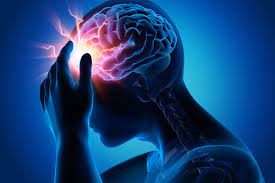In Ayurveda, the association of migraines with an imbalance in the Pitta dosha, especially when it affects the head and nervous system, is common. The Ayurvedic approach to migraine treatment centers on restoring balance to Pitta, mitigating inflammation, and addressing underlying causes. It’s crucial to emphasize the need for personalized treatment plans, considering the variability in specific triggers and imbalances. Here are some general Ayurvedic strategies for migraine treatment:
Dietary Recommendations: Adopt a Pitta-pacifying diet by prioritizing cooling, hydrating, and easily digestible foods. Incorporate sweet, bitter, and astringent tastes, focusing on fresh fruits, vegetables, and whole grains, while reducing or avoiding spicy, salty, and sour foods.
Herbal Remedies: Consider Ayurvedic herbs like Brahmi, Shankhpushpi, Jatamansi, and Guduchi for their calming and Pitta-balancing properties.
Oil Massage (Abhyanga): Regularly massage the head, neck, and shoulders with cooling oils such as coconut oil or Brahmi oil to soothe the nervous system.
Nasya: Explore nasal administration of medicated oils (Nasya) to rebalance Pitta and alleviate symptoms.
Ayurvedic Therapies: Consider Panchakarma therapies like Shirodhara (continuous oil pouring on the forehead) and Shirobasti (head oil pooling) to reduce Pitta in the head region.
Sheetali Pranayama: Engage in cooling pranayama techniques like Sheetali, involving inhaling through the curled tongue, to cool both the body and mind.
Lifestyle Recommendations: Establish a consistent daily routine to provide stability and support the overall well-being.
